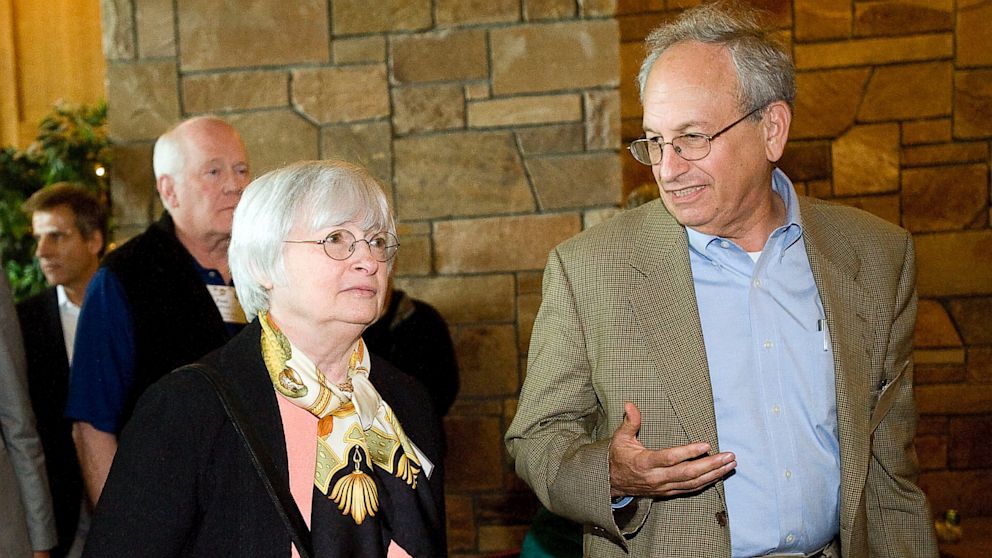What People Are Saying About the Federal Reserve Chair Candidates
Janet Yellen and Donald Kohn are touted as the top candidates for Fed chair.

Sept. 16, 2013 — -- While many investors rejoiced that former Treasury Secretary Larry Summers withdrew his name from consideration to be the next Federal Reserve chairman, possible candidates' names are being mentioned in investment and political circles.
Janet Yellen, vice chair of the board of governors of the Federal Reserve System, is being touted as the top candidate, followed by Donald Kohn, another vice chair of the Fed's board of governors.
Alison Fraser, senior fellow and director of government finance programs at The Heritage Foundation, said both Yellen and Kohn "are highly qualified for the post," both having served as the number two position at the Fed and worked at the central bank for many years.
The principle difference between them how would either handle the continuation of quantitative easing, or QE, and, its unwinding in the future, Fraser says. The future chair's influence will be important not only to the financial markets today, but the broader economy in the years to come.
Here are some things to know about both candidates, and what people are saying about them:
1. Jobs as priority
Yellen believes her primary focus at the central bank should be creating jobs and reducing "painfully high" unemployment, according to Sterne Agee economist Lindsey Piegza, rather than focusing on inflationary pressures.
2. Quantitative Easing
With her focus on bringing down unemployment, Fraser expects Yellen would stay the course on continued easing.
"She is well-studied, and as her intentions to maintain QE are clear this is reassuring to markets," Fraser said. "However, she is an advocate of strong financial regulation which is highly problematic. She is independent and a strong academic and brings an in depth, well-studied approach to her work."
3. Inflation
Yellen was Kohn's successor and is seen as a "dovish-dove with an 'inflationary bias'," Piegza said.
4. Transparency
"Yellen is also an advocate -- like Bernanke -- of greater transparency by the Federal Reserve," Piegza said.
1. Track record with the Great Recession
"Kohn certainly has the experience," Piegza said. He has "been out of the market's watch for a while, but is easily remembered as one that helped navigate in and out of great recession," she said.
Like Greenspan and Bernanke, Kohn did not have the foresight to see and or require the regulation needed to arguably stem the great recession, she adds.
Fed Chair Ben Bernanke said upon Kohn's retirement announcement on March 1, 2010 that Kohn "helped lead the stress tests of major financial institutions; he directed the Board's ongoing efforts to increase the transparency of the Federal Reserve; and he has been leading an international effort...to help central banks focus on key issues and responses to the crisis."
2. Transparency
Kohn is a bit more moderate than Yellen, Piegza said, but both would advocate transparency for the Federal Reserve's decision-making.
Fraser said Kohn reportedly was a reluctant supporter of the Fed Reserve and Bernanke's "unprecedented actions during the financial crisis."
"But Kohn's positions on winding down QE and keeping interest rates low are less clear than Yellen's, which the market doesn't like," Fraser said.
3. Economic view
Piegza calls him a centrist or "moderate dove" on the state of the economy.
"Kohn has been outspoken regarding the risks to the fragile nature of the economy and a firm believer in preemptive Fed action," Piegza said. "Kohn is seen as a primary component in shaping the most recent policy response and initiatives during the financial crisis."
4. Working with the banking sector
On Monday, Kohn spoke at a Brookings conference on "Macroprudential Policy Work" and said the private sector can't take care of externalities of instability by itself. He further discussed the need for "sufficiently high" capital requirements for "too big to fail" and "too interconnected to fail" institutions.




